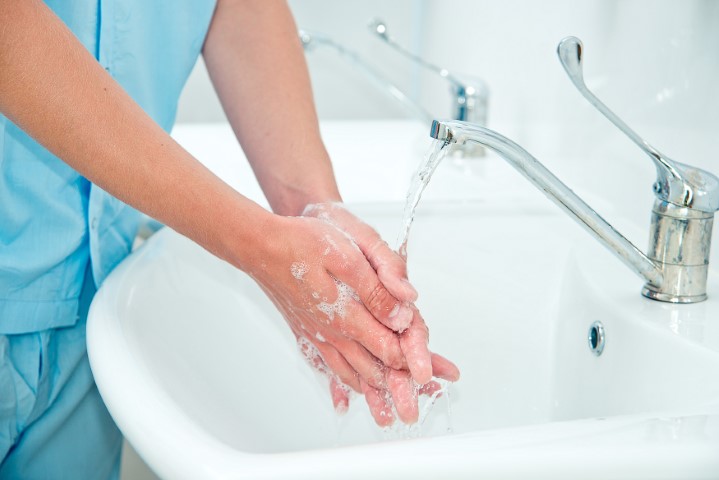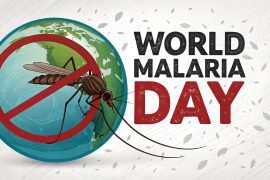The IPC or the Infection prevention and control is an evidence-based practical approach that prevents patients and health workers from being harmed by avoidable infection.
The International Infection Prevention Week was established in 1986. This year’s theme is “Make your Intention Infection Prevention” The idea is to highlight the science behind infection prevention and inspire people to join the fight.
The aim is to make sure that no one catches an infection while receiving health care. There is a possibility that infections can spread through outbreaks and many regular care practices as a result of antimicrobial resistance. This could affect hundreds of millions of people across the world every year. WHO is working with numerous partners to deliver quality care through IPC practices.
Let us take a look at some of the guidelines by the WHO for medical professionals to follow concerning IPC, and how we as patients can also equally be part of the solution:
Core components of Infection Prevention and Control
The WHO core components for Infection Prevention and Control are based on scientific evidence, expert consensus, and experiences of a country, and provide the foundation for strengthening established programs at the national and facility level.
These guidelines enhance the capacity of Member States to develop and implement effective behavioral modifications that are interventions, at national and acute health facility levels. They are a key part of the strategies to prevent infections, disease(es, or threats like Ebola and strengthen health services, thus combating antimicrobial resistance (AMR).
The guidelines are created to support the countries that are still in the process of formulating their IPC protocols and AMR plans to support healthcare and strengthen their approach.
HAIs or Healthcare-associated Infections and guidelines
Annually, millions of patients around the world suffer from healthcare-associated infections. These are called HAIs. HAIs are frequent adverse events in health care, and their global burden remains undetermined because it is rather difficult to gather data that is reliable. IPC undertakes the global issue of HAIs as a key area of work. Research has been conducted to identify published studies through systematic literature reviews from developed and developing countries to highlight the magnitude of HAIs. WHO has published reports on this topic as well.
Hand washing
There is a simple solution to HAIs. Most of these are preventable through good hand hygiene practices. Cleaning hands the right way at the right time is key. The WHO guidelines on hand hygiene in healthcare are shown to be the most effective approach. Hand hygiene improvement programs can prevent up to 50% of avoidable infections acquired during health care delivery. It can also generate economic savings on an average, 16 times the cost of implementation



Surgical site infection Guidelines
- Alcohol-based antiseptic solutions based on Chlorhexidine Gluconate (CHG) for surgical site skin preparation should be used on patients undergoing surgical procedures.
- Patients with nasal carriage of S.aureus should receive intranasal applications of mupirocin 2% ointment with or without a combination of chlorhexidine gluconate body wash.
- Surgical hand preparation should be performed either by scrubbing with suitable antimicrobial soap and water or an alcohol-based hand rub before wearing sterile gloves.
- Mechanical bowel preparation alone (without the administration of oral antibiotics) should NOT be used in adult patients undergoing effective colorectal surgery.
- Hair should not be removed for a patient undergoing surgical procedures unless necessary.
- Shaving is strongly discouraged at all times.
- Surgical antibiotic prophylaxis SAP should be administered before surgical incision when indicated.
- SAP should be administered within 120 min before the incision while considering the half-life of the antibiotics.
Injection safety guidelines
Sometimes, injections that are intended to promote health do the opposite when they are administered in an unsafe way. Practices like using the same needle or syringe to administer injections to more than one person can lead to life-threatening infections.
How you as a patient can join the fight
Being aware of the risks of unsafe injections, the benefits of taking an oral medication, and inquiring about alternatives to injections can be ways in which patients can play their part in IPC. One can also ensure that injections are delivered with a syringe and needle opened from new packets only.
The onus of protecting patients from HAIs or other infections is not just on doctors and healthcare professionals, it is also on us, patients. Prevention is always better than cure. One can educate themselves on how infections can be avoided. Not to mention the very basic solution of handwashing that has kept most of us safe during the ongoing global pandemic.
COVID care in current times, COVID Self test is a need of the hour
As a country, we are standing on the verge of the third wave of COVID. The probable emergence of it is still not clear. Since offices, malls, public places have started opening up in full capacity; we need to be extra cautious about things.
If we don’t want to get again into the grip of the COVID wave, we need to take all basic necessary precautions like putting up a mask, practicing social distancing, and use of sanitizers, etc. Along with this we also have to make sure to avoid the mass spread in case there is a thin chance of probable infection. We need to adapt and facilitate the use of COVID self-test-like methodologies at home that will ensure early diagnosis, less damage to the health, and lesser risk, etc. This kind of self-assessment tool will further reduce the risks of mass outbreak multifold.
These self-test kits are available without prescription on online platforms like Amazon, Flipkart, and PharmEasy, etc, over the counter in a pharmacy or a retail store. At present, self-test kits are used for the detection of current infections by many people across the country. If we overrule such infections at home or take necessary steps in case of infections we can truly avoid the mass spread of the disease and as a country, we will win the war against COVID.
Little practices like these can help us avoid infections passed on during health care delivery. Maintaining basic hygiene is the first step to keeping oneself, and our near and dear ones safe. You can also talk to your doctor and get advice on what daily healthy habits and behaviors you can incorporate to join the fight against infections.





Comments are closed.